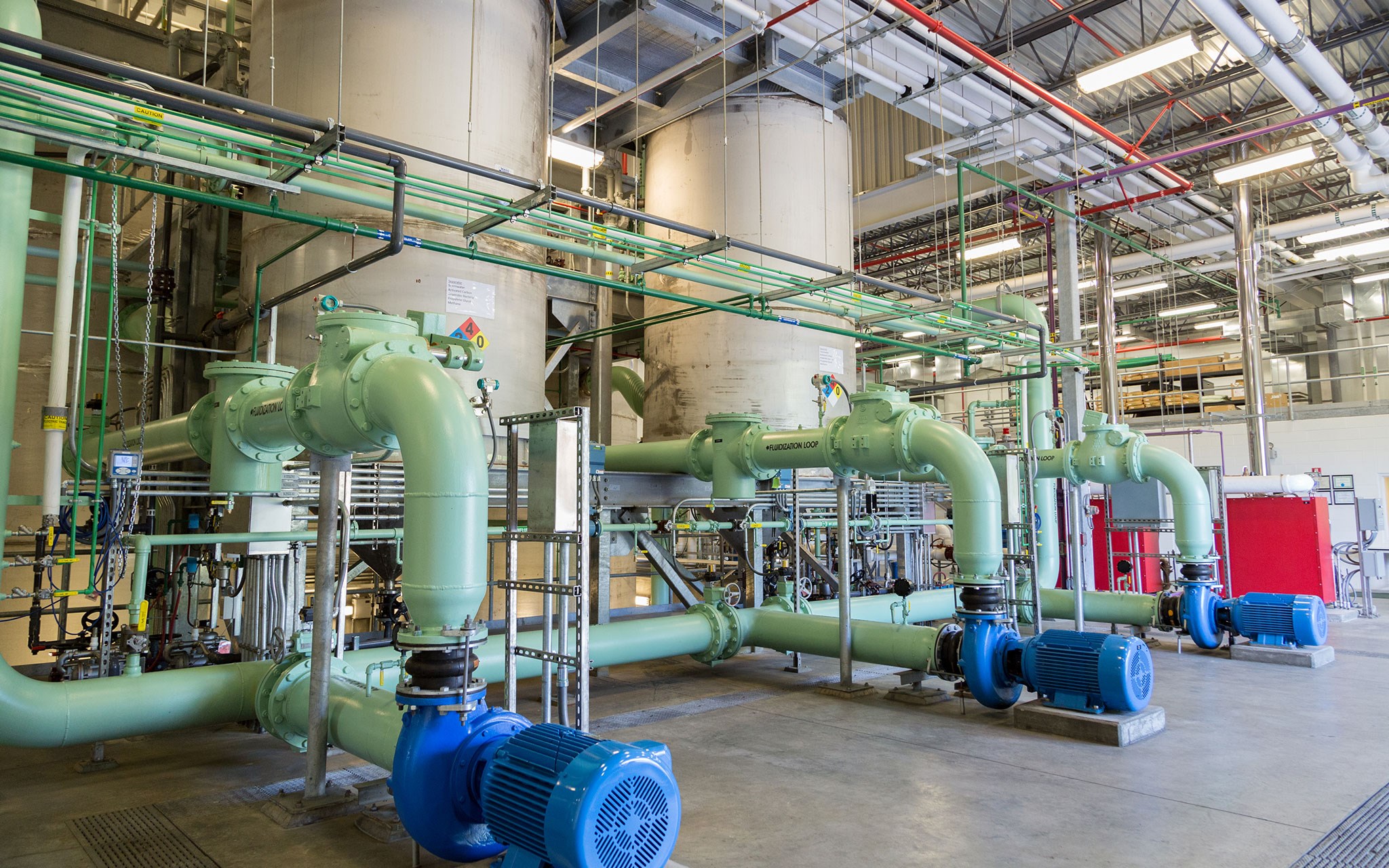As with many airports, managing stormwater contaminated by aircraft deicing fluid has become a priority for T.F. Green International Airport (PVD). To meet increasingly stringent regulations, Rhode Island Airport Corporation (RIAC) solicited Gresham Smith to design a new deicer and stormwater management system for PVD that collects and treats stormwater contaminated by aircraft deicing chemicals more efficiently and effectively while reducing operating costs.
million-gallon aboveground storage tanks
square-foot facility
reduction in natural gas
The Beauty of BIM
Gresham Smith employed its proprietary GlyCAST™ simulation model to evaluate modifications to the collection, diversion, conveyance, storage and treatment aspects of PVD’s current deicer management system. After exploring numerous scenarios, we designed a solution that pairs centralized deicing performance with a smart, passive collection network and an innovative anaerobic fluidized bed reactor (AFBR) treatment facility—one of only a few in the world. We used 3D Building Information Modeling (BIM) software tools to the design and coordinate every aspect of the project, determining the process for the treatment plant first.No More Deicing Lineups
Nobody likes flight delays, and winter air travel often means deicing lineups and long lulls on the ground. The new system alleviates this stress for passengers by allowing aircraft to remain at their gates for deicing and spend less time on the ground before takeoff.Sensors monitor stormwater runoff and automatically divert it for treatment when glycol concentrations exceed permit levels. Two pump stations and 14,900 feet of force main transfer deicer-laden stormwater to two 2.9-million-gallon aboveground storage tanks with odor-control systems that prevent unpleasant smells from reaching local businesses, airport employees, and the nearby FAA control tower.
Bacteria Break-down
Inside the 11,000-square-foot treatment facility, the AFBR uses anaerobic bacteria to break down the glycol into methane and carbon dioxide. The methane is recycled as fuel for the boilers that heat the building and the incoming stormwater, reducing natural gas usage by 95 percent.High Efficiency for Environmental Protection
T.F. Green’s new stormwater management system and its eco-friendly design fit seamlessly into existing airport operations, offering long-term savings and creating a win-win experience for PVD, passengers and the local environment. The high efficiency of the system allows the airport to meet regulatory requirements while better protecting the nearby Buckeye Brook ecosystem. It also positions PVD at the head of similarly sized airports in the Northeast for managing deicer runoff with consistent operating costs.The project was recognized by the United States Environmental Protection Agency’s Performance and Innovation in the SRF Creating Environment Success (PISCES) program in the Exceptional Category, the program’s highest honor.
Project Contact
Our team is committed to improving the places we call home.














